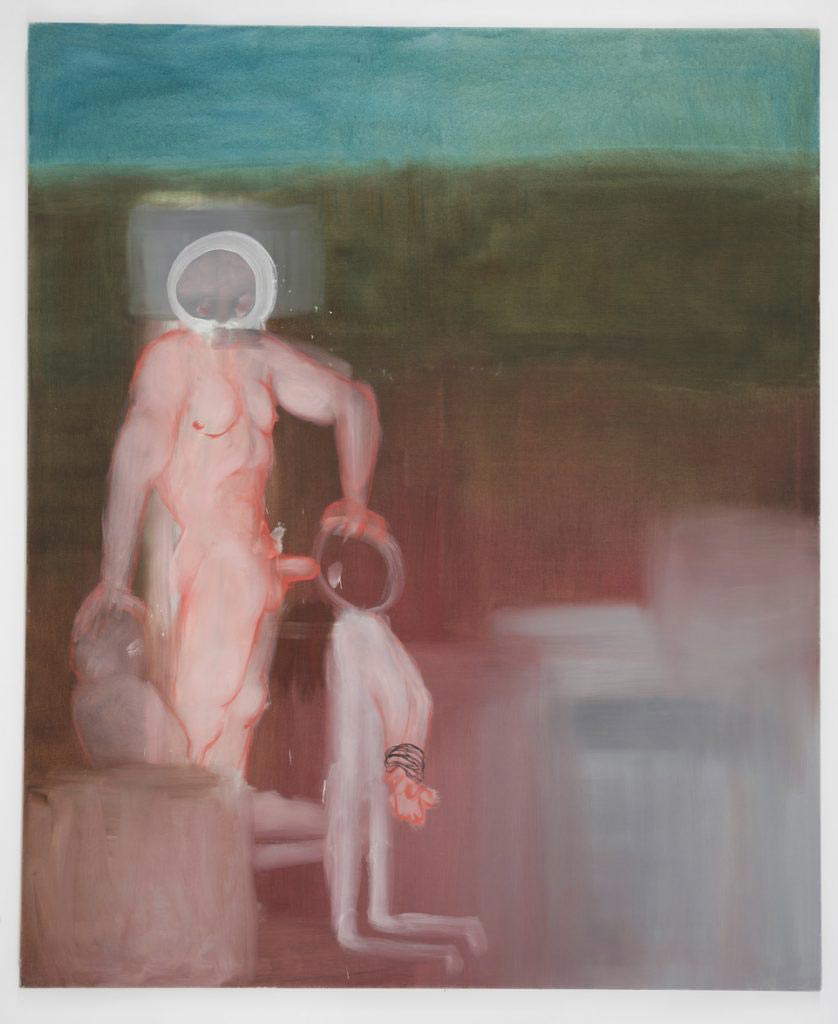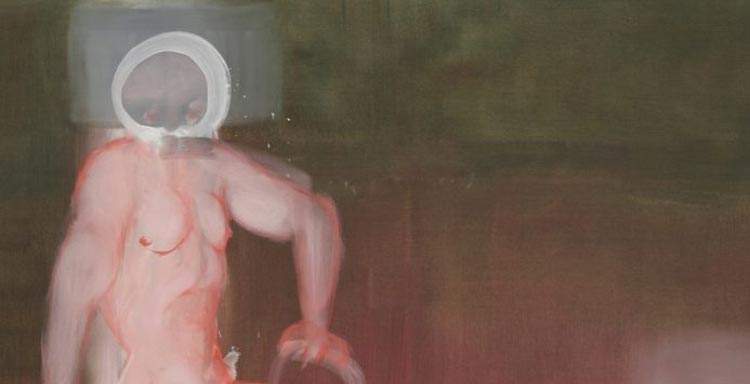A controversy that had been launched by a deputy from Rassemblement national, a French extreme right-wing party, around the work Fuck Abstraction!, displayed at the Swiss artist’s exhibition at the Paris museum, is resolved in favor of Miriam Cahn and the Palais de Tokyo . A lawsuit had also been filed against the museum because, according to extreme right-wingers and some child protection associations, the painting, which purports to denounce the horrors committed in Bucha on the local population during the wartime actions involving the town during the early stages of the war in Ukraine (in particular, it is a denunciation against the violence of war rapes), is a depiction of sexual abuse committed on a child. In the painting, which takes place on one of Miriam Cahn’s signature abstract landscapes, a man is seen having forced fellatio performed on him by a figure of much smaller proportions, with his hands tied.
The law in France prohibits the exhibition of pornographic depictions involving minors: this was what the plaintiffs intended to rely on, but Cahn had long ago clarified that the painting does not depict a child, and that the victim is depicted in a smaller size for symbolic reasons, to allude to the fragility of the oppressed and victims of war. Judge Sylvie Vidal ruled in favor of the artist and the museum, holding that the Palais de Tokyo takes appropriate measures to inform the public about the sensitive content by providing adequate explanatory texts and providing staff who can explain the work verbally.
The ruling states that "the painting, which depicts the silhouette of a powerfully built, faceless man imposing fellatio on a victim with a very frail build, who is on his knees and has his hands tied behind his back, addresses how sexuality is used as a weapon of war and refers to the crimes committed in the town of Bucha in Ukraine during the Russian invasion, crudely depicting the violence suffered by the Ukrainian population. However, this work could not be understood outside of its context and the work of artist Miriam Cahn denouncing the horrors of war, were it not for the fact that all of this is recalled in the documentation distributed to the public.“ The claim that ”the work exhibited would go to constitute a serious and manifestly illegal attack on the fundamental freedom constituted by the best interests of minors“ is thus deemed ”unfounded."
In France, however, the matter had held court for weeks before it reached court, and it had made headlines in newspapers and on TV. There had also been a collection of signatures, signed by 13,000 people, calling for the removal of the work, and even a question to the minister of culture (who, however, said that freedom of expression is guaranteed by law, thus rejecting requests for censorship, and that in any case it was up to the courts to determine whether a crime had been committed). The petitioners have announced that they will appeal the decision of the Paris Administrative Court. For now, the work is still visible.

 |
| French judge agrees with Miriam Cahn, who exhibited shocking work on Bucha crimes |
Warning: the translation into English of the original Italian article was created using automatic tools. We undertake to review all articles, but we do not guarantee the total absence of inaccuracies in the translation due to the program. You can find the original by clicking on the ITA button. If you find any mistake,please contact us.